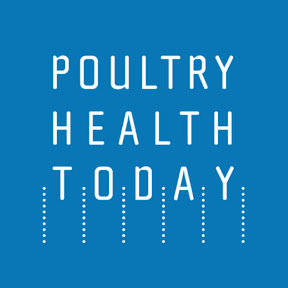



E. coli vaccination yields bottom-line benefits on South African broiler farms
New research from South Africa shows that vaccinating broilers against Escherichia coli is good not just for birds, but also for bottom lines.At the 2019 World Veterinary Poultry Association Congress in Bangkok, Nicolette Love, DVM - poultry technical specialist at Zoetis - told Poultry Health Today that E. coli is an “economically important and significant problem” in South Africa that has traditionally been controlled with antimicrobials and management interventions. But as the broiler industry in South Africa moves toward “no antibiotics ever” production systems, alternative E. coli management strategies are on the rise.
“Using a live E. coli vaccine is one strategy [that’s] helping farmers and producers manage the E. coli situations…on the farms,” she said.
“Live vaccination hasn’t typically been used on farms as a normal production tool, but more in a case of problem farms…because of the cost-benefit ratio. So we…ran a trial to evaluate what the cost-benefit ratio would be for the farmers [when] using live E. coli vaccination.”
Trial design
In the trial, which was conducted on 4 farms, researchers from Zoetis compared houses in which all birds were given a live E. coli vaccine at one day of age to houses in which no birds received the E. coli vaccine. Almost 2 million birds were included in the trial, of which approximately half were vaccinated.1
Several economically significant parameters were evaluated, including mortality, feed conversion ratios, average daily weight gain, final body weight and condemnations at slaughter. Lesion scores were recorded to assess airsacculitis and pericardial fluid samples were collected to perform bacterial cultures and test for multidrug-resistant E. coli.
“It was very important for us to look at all of these parameters, because you may find that one or two parameters change and the others don’t - so you could essentially miss one or two of the benefits if you’re not looking at all of the parameters,” Love explained. “When we look to this, we could see if there was a clear financial improvement…for the farms.”
Vaccination yields economic benefits
Results from vaccinated birds demonstrated reductions in mortalities and condemnations at slaughter as well as improvements in feed conversion ratios, average daily weight gain and final slaughter weights. Vaccination was also associated with reduced airsacculitis, Love reported.
“These parameters were not statistically significant, but when we put the numbers into a cost calculator, there was a definite financial benefit of these small changes in the production factors,” she said.
To test the economic benefits of using the vaccine on normally managed farms, Love explained that the trial was run on farms where there were no particular problems with E. coli. However, she added, trials have also been run on “problem farms” with impressive results.
“Once we started to apply the vaccine on these problem farms, we saw that there was a significant drop in the amount of antimicrobials being used, and that financially also has a huge benefit for farmers and producers going forward,” she commented.
With the move towards “no antibiotics ever” production systems, Love said live vaccination is likely to become a more important part of the toolbox for managing E. coli holistically in broilers.
“With this trial, we have shown that there’s definitely financial benefits of using the vaccine. And I think going forward this is definitely something that farmers and producers will begin to look at.”












